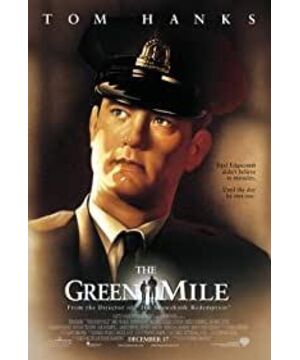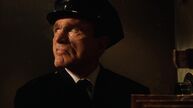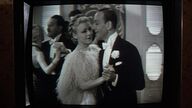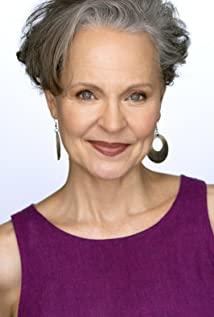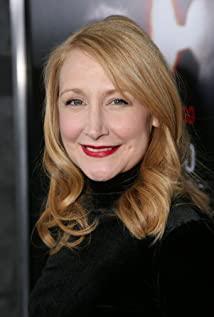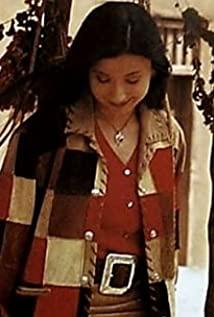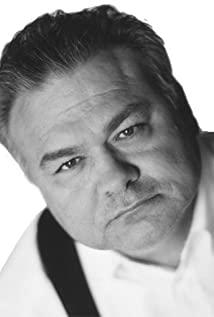The state of Louisiana in 1935 was still shrouded in the aftermath of the Great Depression, and even more so in prison—the "green lane" prison (where there really was a mile of green grass) was filled with despair. It is a death penalty prison, and its icy functions are incompatible with its warm name.
One day a death row was added to the prison. With his hands and feet tied up in shackles, he timidly said to the guards: "I can speak, boss." He moved slowly and could not speak clearly, but he was extremely docile, so docile that it was hard to believe that he was the murderer of the two little girls. John's surname Coffey is the same as coffee, and he does something to "refresh" for others: between his imprisonment and before his sentence, he frequently showed his powers and miraculously cured Paul's cystitis, The terminal illness of Kerr's wife even brought back to life Dell's beloved mouse "Mr. Ginger". He is like a bright light in the prison corridor, reminding others when they are in despair that there is always a gleam of light that breaks through the darkness.
When commenting on Socrates' "The Defense", a scholar wrote: The basis of life and the reason of death. For death row prisoners, death is a simple matter. Even if the legs tremble before execution and cry to the ground, once the prison guard presses the button, there will be no chance of crying—the pain is too soon to come. On the contrary, life requires great courage. Other death row inmates are worried about the day of execution, but John is suffering differently. His divine power enabled him to see through everything, insight into the sinister heart and all the sufferings that had happened around him. He kept repeating: he was in pain, he was tired. He has no one to sue, he can only bear it silently. Nevertheless, whenever others are in pain or hurt others, John will always use his supernatural power to move all the suffering to his shoulders. The sage Socrates, who was beyond life and death, said: "An uninspected life is a life that is not worth living." "I will die and you will live. No one knows which one of us is better, unless is God". In contrast, John was a pioneer who did godly things in a mortal body.
Opening the "Bible", John's miracle and his self-abuse behavior were explained in an instant. His body is mixed with many human qualities: his name is one of the twelve disciples of Jesus; he has the power of a prophet like Moses; he redeemed the souls of others and was nailed to a chair (cross) to die, like two thousand years Jesus before. In the Christian world known for its sin culture, people with original sin need God's power to wash themselves and complete salvation. John is God's agent in the mortal world. What he does is not only to heal, but to redeem the souls of others.
There is a heartbreaking scene at the end of the movie: John said that he was afraid of the dark and asked the guards not to wear headgear before being tortured. However, when the electric current penetrated through the electric chair, the lights in the prison still crackled with dazzling sparks. After splashing, it exploded and went out. John's last wish was not fulfilled, and he fell asleep forever in the darkness. Those who hold salaries for everyone eventually freeze to death in the wind and snow. The film undoubtedly throws the audience a moral problem worth thinking about in the dilemma between human nature and the law.
What can be interpreted as a small egg is that the whole film pays tribute to "Shawshank's Redemption" (it is a director at all): classic prison theme, character setting, rainstorm night and human nature, redemption and self-salvation, spiritual freedom. The later "Unreachable" and "Last Wish List" are also very similar to it. "The Green Mile" is not inferior in a series of movies with redemption as the motif, which shows its expressive power.
However, although the warmth side of the film is very touching, there are still several plots and settings that are slightly eye-catching, as if a pot of cooked rice is sandwiched with a few grains of raw rice. At the end, all the prison guards had witnessed John's miracle and were convinced that he was not the murderer who killed the little girls. The real murderer had been punished by Percy. However, the United States clearly has a "three-level model" of a perfect judicial system, but the prison guards are as blind as the law. They only want to let John leave with dignity and move themselves. No one has ever considered saving him through judicial means. Going one step further, why was John sentenced to death? To the United States, which has a reputation for judicial justice, why has justice lost its voice at this moment? I can't help but want to cry out for justice-even if it is justice that is late, it is better to give John a vindication than to vindicate him forever. Of course, it can be said that this is to highlight the tension of the plot. Judicial justice that has nothing to do with the theme is naturally less important than the glory of human nature. But modern Western literary theory reminds us: Once a work is produced, it no longer belongs to the author. I have the right to deconstruct the film from a non-mainstream perspective, even if it is "picking the bones in the egg". Moreover, in reality, the logic here is not self-consistent.
In addition, there is a little personal interpretation of conspiracy theory. John is a black man in the "traditional sense" of the United States: big man, lack of culture, clumsy actions... This is almost a concrete reproduction of the stereotype of blacks in the Western context. Furthermore, among the many inmates in the prison, John is the only death row inmate who faced the guards in a humble and even humble manner from beginning to end. Maybe I overinterpreted it, but I still feel that I can smell a hint of white supremacy. In order to prevent John from escaping, the scene of the guards walking around the barefooted and ragged John, who was fully equipped and armed with guns and batons, even reminded me of the 18th century plantation, whips, slave owners, and powerless cotton-picking slaves... …The film is obviously not intended to express such a theme, but such a setting is really a weird flower in the political correctness environment of Europe and America.
However, no matter what small flaws the film has, the flaws will not cover up, at least the flaws are greater than the flaws. As an atheist, my only belief is communism (laughs), but I still feel the power of religious belief while watching the movie. Obviously, this movie has been successful.
View more about The Green Mile reviews


